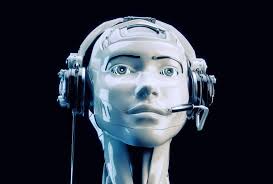Harnessing machine learning algorithms and natural language processing have been key drivers to advancing the reliability of AI text-to-speech (TTS) capabilities in recent years. This is in part due to the developments of modern TTS, which manage highly natural sounding speech that realistically captures elements like intonation or pitch and rhythm.
AI text to speech technology can create life-like voice based on state-of-the-art models including Tacotron 2, which generates human-like audio snippets from textual input using synthetic data. These models can be measured in the millions of parameters and are able to memorize fine peculiarities of speech. DeepMind has its own system called WaveNet, which can create human-like speech at incredibly fine levels. It also improves voice quality, showing rates over 90% in tests with human-like accuracy.
We are already seeing worldwide market demand growth evidenced by the above-mentioned forecasts of a $5+ billion dollar effort to eliminate robot voices from our digital lives. The growing need for digital content accessibility from people with visual impairments and reading difficulties, is a big factor in this growth. Given that up to 15% of global population has a disability, TTS technology is essentially in paving the way for equal access to information and communication.
AI text-to-speech is commonly used in a lot of systems such as virtual assistant like Alexa, Google Assistant where we need more reliability. Tech research firm told T3 that 40 percent of adults use voice assistants every day so as people interface with tech more and more through speaking, the critical importance of robust TTS technology isn't likely to diminish. They make them carry weight and are always expected to work properly; if these systems which no one rapidly learns may respond, they have to be consistent in their responses. They must remain "jerk-free".

And yet a custom machine learning text to speech system can make the model more practical, and based on requirements making it true for growth. A selection of voices, accents an languages ensures that the output is congruent with user preferences and cultural backgrounds. This helps in delivering a user experience that is more personalized and relatable catering to different demographics, making an appealing technology.
However, there are still some challenges to work through in terms of creating AI text to speech that is consistently believable. Accents, dialects and context-specific language affects the accuracy of TTS outputs as well. On the contrary, persistent refinements to machine learning algorithms address these issues and the research remains ongoing on ways of improving language models for them to be able to mimic a variety of linguistic subtleties more efficiently.
Ethics is another factor to be taken into consideration when it comes to the reliability of AI text-to-speech technology. Data privacy and security are major issues as TTS systems typically need to have access to compliant organizational data in order perform well. The organisations cannot turn a blind-eye to data protection regulations such as GDPR which should help ensure companies take seriously safeguarding of its user information, so that they maintain trust.
Similarly, the transformative power of AI text to speech and its influence on accessibility are now recognized by industry leaders as a key element in user experience. AI is one of the most profound thing we are working on as humanity," Sundar Pichai, Google CEO(Encrypted Media) This is something deeper than fire or electricity. This statement underscores the importance of AI, specifically TTS among other technologies in offering a glimpse into what human-computer interaction will look like tomorrow.
The trustworthiness of AI text to voice is something that improves, thanks to deep innovations performed on the field. Taking advantage of state-of-the-art algorithms and models, TTS systems are getting better at generating high-quality audio that is natural-sounding in various use cases In the coming years, we can expect these advancements to drive accessibility, productivity and adoption in many more segments of industry making AI text-to-speech as an indispensable component contributing towards modern digital communication.